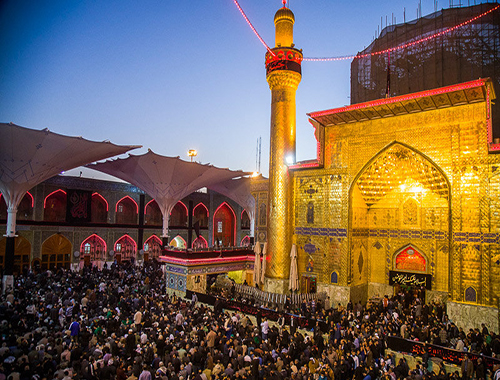Supplication
- Details
- Hits: 5085
SUPPLICATION
Question:
What are meant by supplications[41] and why should we make them?
Answer:
Supplication is tantamount to the words man utters to his Creator in which he asks God for a need, expresses a grievance, praises his Lord, enumerates the blessings and benefits bestowed upon him or seeks His guidance concerning something which either he is inclined to do or has an aversion from doing.
The benefits of supplication consist in:
1. Man linking himself with the Creator of the universe.
2. Strengthening the soul since if man realizes that he is bound to God the Mighty, his soul gains strength and the strength of the soul is the source of courage and fearlessness.
3. Bringing about serenity and inner peace, for serenity diffuses happiness.
4. Instilling what is good in the soul and keeping the believer from bad things due to the inspiration which is got from making supplications.
5. Leading the supplicant to a recognition of what is good and what is evil since prayers elucidate this. Identification of good and evil, for invocations always contain this.
6. Moreover, God Almighty replies to supplication, just as He says in the Holy Qur’an:
“And your Lord said: Pray to me and I will answer you ”[40: 60] and so the needs of a believer for this world and the hereafter are fulfilled.
In short, Islamic supplications are a perpetual source of learning the like of which is not found in any other faith or religion, and from which man benefits, beginning from his earliest days until the last moments of his life.
Question:
Please give an example of a supplication.
Answer:
We will mention here, as an example, parts of the supplication of Imam al-Sajjad[42] (peace be upon him) from his prayer to acquire “The most beautiful virtues”[43]:
“O God extend your sustenance upon me and do not try me by my looking at [what other people have got]; give me strength and do not afflict me with arrogance; make me Your slave and do not spoil my worship by my becoming absorbed with myself; cause me to be a means of doing good for others; do not blot out my good deeds because of my making others feel that they are indebted to me; grant that I treat others in the noblest way and protect me from self-congratulation”
“O God pour out Your blessings upon Muhammad and his Progeny and guide me that I combat one who has cheated me, with kindness; that I reward the one who has decided to have nothing to do with me, with munificence; that I remunerate one who has deprived me, with generosity; that I requite one who had cut off any association with me, by visiting him; and oppose one who had spoken behind my back, by speaking well of him; and may I be grateful for any favour [shown to me] and overlook anything done against me.”
“O God pour out Your blessings upon Muhammad and his Progeny and I beseech You that I may not be oppressed, since you have the power to defend me; that I do not oppress [others], since you have the power to restrain me; that I am not led astray, since you are able to guide me; that I shall not be in need, since my well-being is in your hands; and that I do not maltreat [others], since any power I have is from You”.
Anyone who scrutinizes the supplications of the Prophet (God’s blessings and peace be upon him and his progeny) and the Imams, some of which have been included in the volumes called al-Qur’an wa-’l-du‘a’ in Bihar al-anwar[44], or in Mafatih al-jinan or al-Sahifa al-Sajjadiyya will realize that supplications are indeed a great treasure that can be used to make man happy both in this life and the hereafter.




![take advantage of your [present] time](/en/media/com_hwdmediashare/files/99/f5/fb/5293162f4d04afb1ed8da3034e984340.jpg)






